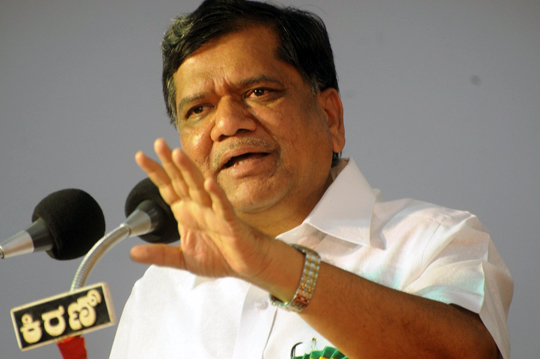Bengaluru, May 7: The BJP on Friday said a lot of procedural and financial irregularities had taken place in the establishment of water testing laboratories and purchases made by the Rural Development and Panchayat Raj (RDPR) department.
Leader of Opposition in the Legislative Assembly Jagadish Shettar told reporters that the department spent Rs 190 crore to establish water quality testing labs in 146 taluks since 2014. RDPR?Minister H?K Patil encouraged nepotism and is directly involved in the scam. The government must cancel the tender for the works and order an inquiry, he demanded.
The senior BJP leader released some documents to support his claims. However, he did not come out with any documentary evidence to show Patil's direct involvement.
Shettar said a certain Prasad Rayapati had got the tenders through his companies in three phases to establish the labs. In the first phase, the work orders were issued for establishing labs in 80 taluks. In the second phase, the work orders were given to Prasad in deviation of the tender process. In the final phase, tenders of other bidders were rejected on technical grounds to help Prasad as he remained the sole bidder.
Rules were changed'
Shettar said that to participate in the tender process, contractors/participants should be either manufacturers or dealers of the products required for a project. Though Prasad was ineligible to participate in the tenders, the department changed the rules to help him. The department stated the work could be taken up in association with another company.
The rules specify that the contractors, of their five years' existence in business, should have transacted business worth Rs 57 crore in two years. To fulfill this norm, Prasad has tied up with Srinivasa Constructions India and gained backdoor entry, Shettar said.
Prasad had not submitted insolvency certificate worth Rs 15 crore, which is compulsory. Prasad and the companies which he has created - Ray Environ - and Global Technologies, Sawant Instrument Private Limited, Hyderabad and Gen Next Lab Technologies, New Delhi have illegally submitted the certificates to get the work orders, he charged.
Shettar said there have been financial irregularities in water testing too. For instance, officials have written to the department that the firm floated by Prasad has taken money without carrying out lab tests on borewell waters. Lab reports have been submitted even for those borewells which have been defunct, he pointed out.




Comments
We accept present Govt correption far better than previous BJP Govt. All Kannadigas want a peaceful anti communal Govt. At present Congress N AAP are the right party.
Jai Hind Jai Karnataka
Add new comment